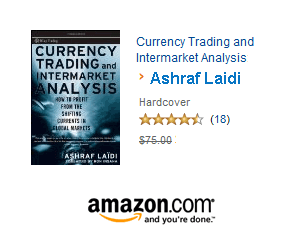Forum > View Topic
by Ashraf Laidi
Posted: Feb 22, 2010 5:00
Comments: 8936
Posted: Feb 22, 2010 5:00
Comments: 8936
Forum Topic:
Gold, Oil & Indices (Equity & Bond Indices)
Discuss Gold, Oil & Indices (Equity & Bond Indices)






does anyone consider what a fortune GS and MS rake in if FOMC meeting comes up with just the opposite they have been cooking up to sizzling?
I am in for an expectable surprise.
in XAU becuase we have the same behind the rumors as always, GS and MS.
thanks
There is a divergence in slow stochastics for the daily Gold chart..
what are your comments on the Gold ?
Brave New Banking World, Same As The Old One
By ALEN MATTICH
A DOW JONES NEWSWIRES COLUMN
There are three bits of news relating to the banking sector worth bearing in mind Monday.
First, bank shares responded positively to details of the new regulatory agreement concerning bank capital levels. Second, pay for the City of London's junior bankers jumped 12% on the year, according to an industry recruitment firm. And finally, the sovereign debt yield curve is steepening.
All three suggest that the brave new banking era will be a lot more like the bad old pre-Lehman one than is healthy. Which means more moral hazard and more financial market catastrophe over the coming years.
On the face of it, the banking regulators have instituted some tough new capital and liquidity rules. The minimum amount of equity banks will have to hold is going up to 4.5% from 2%. Tack on a just in case capital buffer and that Tier 1 ratio rises to 7%. Finally, there's a pro-cyclical capital requirement. In good times, banks will be forced to hold even more capital to prevent excess lending.
So why should Europe's banking shares tack on a near 2% gain in early trade? Because the requirements will be imposed only very gently over eight years or so. And banks almost universally already meet most of the capital requirements. That's because regulators have colluded with them over asset valuation, allowing absurdly overpriced valuations to create the illusion of strong earnings which, in turn, were tacked on to the capital base.
The jump in salaries, and a return to boom time bonuses and hiring practices, merely follows on from banks' expectations strong earnings growth will be maintained--new regulations notwithstanding. OK, so some of the rise in wages reflects the paring back of cash bonuses, which are being replaced by share options. But to all appearances, the difference for those employed in the industry between now and the years before Lehman are trivial.
As for the rise in longer dated bond yields, this points to an expectation that government-subsidized earnings will keep running for a long time yet. Banks can borrow fantastically cheaply from central banks and then invest the money straight into longer dated bonds. The yield differential looks like free money. But it is in fact a central bank-engineered transfer of wealth from prudent savers to bankers. Long dated yields are rising because investors realize inflation will be picking up in the years to come. And inflation will be picking up because central bankers are committed to very low short rates for a very long while. Inflation will provide the additional boost of lifting the value of assets on banks' books.
In other words, bankers, as ever, are the biggest winners to come out of the disaster they were so instrumental in creating.
But that doesn't mean things can't go wrong.
John Hussman, the fund manager, points out Wall Street's profit margins are 50% above historic norm. And profit margins are mean reverting.
"A great deal of what represents paper wealth (in the banking sector), created out of nothing but a sharpened pencil, will be wiped away in the coming years, because there are not sufficient cash flows behind those asset valuations," he wrote in his latest weekly note.
When the next accident happens to the industry--and, because reform is superficial, while moral hazard has been reinforced, this will happen sooner rather than later--governments and central banks will no longer be in a position to rescue the banks. The public will not stand for it and any effort to do so would undoubtedly be met with lynch parties.
But until then, savers and prudent investors will continue to be punished and bankers rewarded.
(Alen Mattich is a senior reporter and has been writing a column on market strategy for seven years. He can be reached at +44-20-7842-9286 or by email: alen.mattich@dowjones.com)
buying put if any
and/or buy write at this level or a little above and cash in the prime.